This one-day conference (last held in 2020) highlights and supports research into effective teaching and learning, particularly the Teaching as Research projects conducted each year by graduate students and postdocs. Research talks and opportunities for discussion will explore how early career scholars have used scholarly inquiry to inform and improve discipline-specific teaching practices, and also drawn upon these experiences in their own career development.
Cornell faculty, staff, graduate students and postdocs are encouraged to register to attend any parts of the day that interest them. Attendees from other institutions are also welcome to register. We particularly invite CTI Graduate Teaching Fellows, teaching assistants, faculty and postdocs engaged with the university-wide Active Learning Initiative and First-Year Writing Seminars or summer session courses, and other CIRTL Network members.
Online Mini-Symposium on Connecting Research and Teaching
Friday, May 29, 2020 from 9:30 am – 1:30 pm
Presenter and Attendee Information
An invited plenary presentation by Dr. John Foo, Ph.D. ’18 (Biomedical Engineering), and now at Columbia University, highlighted how Foo’s engagement in research on teaching and learning and communication with colleagues on improving learning outcomes influenced his career trajectory towards working at a teaching center. Shorter research presentations by Scholarship of Teaching and Learning Practitioners will share efforts of recent Cornell-based educational projects, and we will make time for interactive discussion opportunities and sharing of community announcements.
Attendee and presenter pre-registration is kindly requested by May 28, 2020 for planning purposes. However, we will accommodate last-minute registrants if space permits. Please contact futurefaculty@cornell.edu with questions and concerns.
2020 Agenda
9:30am Welcome Remarks (meeting convenes by Zoom, register to receive link)
9:35am Invited Plenary Talk: Lessons Learned While Pursuing a Career in Faculty Development
- Presenter: Dr. John C. Foo, Cornell Ph.D. ’18, Assistant Director of Faculty Programs and Services for Science and Engineering, Columbia University Center for Teaching and Learning (see Plenary Talk abstract)
10:30am Research Talks I: Recently Completed Projects
Featuring 15-minute presentations by Scholarship of Teaching and Learning Practitioners
- Arielle Johnson, Plant Biology: Perceptions of Scientific Professionals in an Introductory Cell Biology Course (10:30 am)
- Kelsey Utne, History: “Done to Death”: Teaching Primary Source Literacy in an Unconventional First-Year Writing Seminar (10:50 am)
- Eugene P. Law, Soil and Crop Sciences, with Kristine M. Averill and Antonio DiTommaso: Scientific Literacy in the Weed Science Classroom (11:10 am)
- Dashiell J. Massey, Molecular Biology and Genetics: A Historical View of Curricular Changes to the Cornell University Biological Sciences Major (11:30 am)
(see Research Talks I abstracts)
11:50am Short Break
12:00pm Research Talks II: Career, Publications and Long-term Implications of Scholarship of Teaching and Learning / Teaching as Research
Featuring 15-minute presentations by Scholarship of Teaching and Learning Practitioners
- Duc Pham, Molecular and Cellular Medicine, Ph.D. ’20: Beyond Bloom’s: The Role of Repetition in the Maintenance of Mastery (12:00 pm)
- Emily Riddle, Nutrition, Ph.D. ’18: Assessment of Changes in Student Ability to Utilize Evidence-Based Practice in Undergraduate Dietetics Students (12:20 pm)
- Christine Georgakakos, Biological and Environmental Engineering: Reflections on the Interdisciplinary Nature of Teaching as Research (TAR) Projects: Planning to Publication (12:40 pm)
- Andrew St. James, Microbiology: Reflections on an Evolving SoTL Project: From Inception to Publication (1:00 pm)
(see Research Talks II abstracts)
1:20 pm Community Announcements: Open forum for good news
2020 Abstracts
Invited Plenary Talk: Lessons Learned While Pursuing a Career in Faculty Development – Dr. John C. Foo
9:35 am – Session Description
Promoting widespread faculty adoption of teaching practices that are inclusive, learner-centered, and validated as effective by research is a core challenge in educational development. In this talk, John C. Foo will share his experience in these efforts in his role as Columbia’s Assistant Director of Faculty Programs and Services for Science and Engineering. John will discuss how his expertise in biomedical engineering and experiences with teaching-as-research informed his career progression. He will also share insights gained from working with graduate and faculty instructors, and how he adapts and scales efforts across disciplines and programs. Graduate students and postdoctoral candidates who are passionate about solutions to pedagogical challenges may find a career in faculty development fulfilling.
Presenter Biography
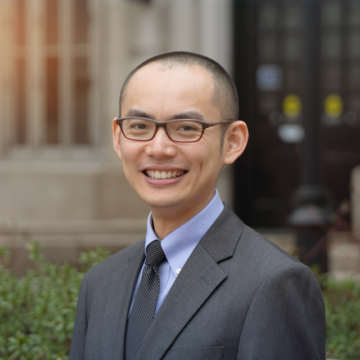 John C. Foo is the Assistant Director of Faculty Programs and Services for Science and Engineering at Columbia’s Center for Teaching and Learning. He develops and facilitates programming and services for faculty, postdoctoral, adjunct, and other instructors. John is committed to enhancing STEM education and making it more equitable for and accessible to Columbia’s diverse student population. John received his Ph.D. in Biomedical Engineering from Cornell University and his B.S.E. in Biomedical Engineering from the University of Michigan, Ann Arbor. While John was at Cornell, he completed the Teagle Fellowship, the Graduate Teaching Assistant Fellowship, and the Graduate Research and Teaching Fellowship. He published the results of one of his studies on the Flipped Classroom.
John C. Foo is the Assistant Director of Faculty Programs and Services for Science and Engineering at Columbia’s Center for Teaching and Learning. He develops and facilitates programming and services for faculty, postdoctoral, adjunct, and other instructors. John is committed to enhancing STEM education and making it more equitable for and accessible to Columbia’s diverse student population. John received his Ph.D. in Biomedical Engineering from Cornell University and his B.S.E. in Biomedical Engineering from the University of Michigan, Ann Arbor. While John was at Cornell, he completed the Teagle Fellowship, the Graduate Teaching Assistant Fellowship, and the Graduate Research and Teaching Fellowship. He published the results of one of his studies on the Flipped Classroom.
Research Talks 1: Recently Completed Projects
10:30 am ET – Arielle Johnson, Cornell Ph.D. Candidate in Plant Biology – Perceptions of Scientific Professionals in an Introductory Cell Biology Course
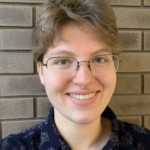
Many students, especially gender and racial minorities, switch majors from STEM to the humanities after early biology coursework. This experimental study tested whether “normalizing failure” could change early-career biology students’ common misconception that professional scientists are naturally talented and that students who struggle cannot pursue science. In the control group, class was taught as usual. In the treatment group, the instructor provided anecdotes of many different scientists experiencing failure – herself, other TAs, professors, and famous scientists – and gave students a minute to talk about their struggles at the end of each class. Both quantitative and qualitative results of this study will be presented. The effects of the COVID-19 pandemic on data collection during the second semester of this study, and the effects of the pandemic on students’ career plans and perceptions of scientific professionals, will also be discussed.
10:50 am ET – Kelsey Utne, Cornell Ph.D. Candidate in History – “Done to Death”: Teaching Primary Source Literacy in an Unconventional First-Year Writing Seminar
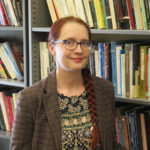
In a course about the history of commemorating the dead, students completed part of an assignment series that asked increasingly complex questions about primary sources. Having witnessed many undergraduate history lessons compress primary source literacy to a single, overwhelming instruction session, I was frustrated. I designed the sequence based in part on scaffolding introduced by Badhe (2013) in order to equip students with the skills to tackle unfamiliar sources with an analytical eye. Over the course of the term, students examined, analyzed, and wrote about an 18th century post-mortem report, a colonial official’s letter about corpse disposal for executed prisoners in Fiji, and an ordinance legalizing cremation in British Honduras after the mistaken burial of a Sikh man.
11:10 am – Eugene P. Law, Cornell Ph.D. Candidate in Soil and Crop Sciences, with Kristine M. Averill and Antonio DiTommaso – Scientific Literacy in the Weed Science Classroom
Scientific literacy is an oft-stated learning objective for students of all ages, yet few STEM courses include explicit instruction in these skills. Here we report on students’ self-reported proficiency and confidence in reading and writing scientific literature before and after taking an upper-level weed science course that provides scaffolded opportunities to practice these skills. We also asked students about their level agreement with a number of statements about contentious topics in agricultural and weed science to better understand students’ perception of these key issues. Survey respondents (n = 9) indicated an increase in the influence of journal articles on their understanding of science (pre: 2.88, post: 3.57; p = 0.076) and their confidence in reading, writing, and interpreting scientific papers (pre: 3.12, post: 3.58, p = 0.107) during the semester. These results indicate positive learning outcomes but cannot be linked to any specific intervention, which we hope to examine more closely with future cohorts of students.
11:30 am – Dashiell J. Massey, Cornell Ph.D. Candidate in Molecular Biology and Genetics – A Historical View of Curricular Changes to the Cornell University Biological Sciences Major
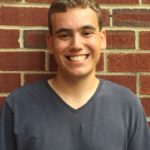
The course requirements for a bachelor’s-level degree program are intended to create a “meta-curriculum” that together provide a certain core competency in the major discipline. In the field of biology, the fundamental building blocks of this core competency have been rapidly evolving, expanding, and diversifying over the past decades, leading to restructuring of departments and curricula. In 2010, Cornell University implemented revised requirements for the B.S. in Biological Sciences degree, which included replacing a two-semester required Introductory Biology course with a set of three introductory-level courses; students can enroll in any two of these courses. The revised meta-curriculum did not, however, make any changes to the Genetics lecture and laboratory courses, which are among the only mandatory courses in the department. Thus, the prior molecular biology knowledge of students enrolled in Genetics is more heterogeneous than it was before 2010. I am interested in understanding the impacts of this change on student learning outcomes. However, much of the most relevant “literature” on this question dwells solely in the recollections of long-term instructional faculty and staff, who comprise the institutional memory of the course. As a first step toward designing well-founded research on the student impacts of these changes, I have drawn on contemporaneous written records and conducted narrative interviews to construct a history of the redesign, its objectives, and its outcomes. This work will provide necessary context to the development of additional quantitative and qualitative instruments, e.g. those that gather data directly from students.
Research Talks 2: Career, Publications and Long-term Implications of Scholarship of Teaching and Learning / Teaching as Research
12:00 pm – Duc Pham, Cornell Ph.D. ’20 in Molecular and Cellular Medicine – Beyond Bloom’s – The Role of Repetition in the Maintenance of Mastery
Guided by a course manual, BIOG1445 students learn through textbooks, online resources, and interacting with teacher assistants. Beyond the initial indication of mastery, however, there are no formalized opportunities for BIOG1445 students to revisit previously learned material. Therefore, we seek out to determine how well material mastered early on in BIOG1445 is retained as a function of time and how repetition allows for overlearning. We hypothesize that beyond initial mastery, students forget previously learned material, unless re-exposure activities involve high-level thinking. Here, we construct a learning/forgetting curve by asking different groups of students to remember simple facts and analyze by comparing and contrasting concepts in unit 5 on a questionnaire given at the end of unit 6, 7, 8, or 9 written exams. We will then evaluate student responses and correlate their performance to time since mastery for each level of information processing. We expect that as post-mastery time increases, students’ ability to recall facts and analyze information decreases.
12:20 pm – Emily Riddle, Assistant Professor of Foods and Nutrition, SUNY Oneonta (Cornell Ph.D. ’18 in Nutrition) – Assessment of Changes in Student Ability to Utilize Evidence-Based Practice in Undergraduate Dietetics Students
 Evidence-based practice is a crucial component of medical nutrition therapy. However, little has been published on effective techniques used to teach students to evaluate evidence and decide whether or not to use results in patient care. The purpose of this project was to evaluate the effectiveness of a module created to teach students the skills they need to appropriately translate research into evidence-based practice. A 3-hour module was designed using social learner theory and mindmaps. The module was integrated into a mid-level dietetics course (n=32 students). A 15-question pre/post-test was developed to assess confidence, knowledge and perceived barriers related to evidence-based practice. Quantitative data were assessed using paired t-tests (p<0.05) and qualitative data were coded and assessed for common themes. Prior to the module, 97% of students felt it was important or very important to be able to critique the scientific literature; however, only 19% felt confident in their ability to do so. The volume of available research and a lack of confidence and time were the most common perceived barriers to appropriately using research in practice. Comparison of pre- and post-tests showed that this module significantly increased students’ confidence in their abilities to use and evaluate the scientific literature (p<0.001) and significantly increased student performance on scored questions (p<0.001). In conclusion, this 3-hour module is an effective way to teach students to critically evaluate scientific literature. Because of its design, it can be adapted for the instruction of students or practicing registered dietitians alike.
Evidence-based practice is a crucial component of medical nutrition therapy. However, little has been published on effective techniques used to teach students to evaluate evidence and decide whether or not to use results in patient care. The purpose of this project was to evaluate the effectiveness of a module created to teach students the skills they need to appropriately translate research into evidence-based practice. A 3-hour module was designed using social learner theory and mindmaps. The module was integrated into a mid-level dietetics course (n=32 students). A 15-question pre/post-test was developed to assess confidence, knowledge and perceived barriers related to evidence-based practice. Quantitative data were assessed using paired t-tests (p<0.05) and qualitative data were coded and assessed for common themes. Prior to the module, 97% of students felt it was important or very important to be able to critique the scientific literature; however, only 19% felt confident in their ability to do so. The volume of available research and a lack of confidence and time were the most common perceived barriers to appropriately using research in practice. Comparison of pre- and post-tests showed that this module significantly increased students’ confidence in their abilities to use and evaluate the scientific literature (p<0.001) and significantly increased student performance on scored questions (p<0.001). In conclusion, this 3-hour module is an effective way to teach students to critically evaluate scientific literature. Because of its design, it can be adapted for the instruction of students or practicing registered dietitians alike.
12:40 pm – Christine Georgakakos, Cornell Ph.D. Candidate in Biological and Environmental Engineering – Reflections on the Interdisciplinary Nature of TAR Projects: Planning to Publication
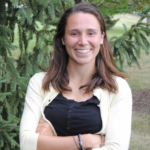 Teaching as Research (TAR) projects are inherently interdisciplinary, pulling assessment methods and analysis techniques from several disciplines. There are many challenges involved with the collaborative nature of these studies that ultimately lead to unique perspectives on and interpretations of the results. While some hurdles in collaborative research need to be addressed with each new project, others can be acknowledged and incorporated ahead of time for smoother planning and timely publication.
Teaching as Research (TAR) projects are inherently interdisciplinary, pulling assessment methods and analysis techniques from several disciplines. There are many challenges involved with the collaborative nature of these studies that ultimately lead to unique perspectives on and interpretations of the results. While some hurdles in collaborative research need to be addressed with each new project, others can be acknowledged and incorporated ahead of time for smoother planning and timely publication.
1:00 pm – Andrew St. James, Cornell Ph.D. Candidate in Microbiology – Reflections on an Evolving SoTL Project: From Inception to Publication
Over the course of four semesters, I conducted a Scholarship of Teaching and Learning (SoTL) project with the goal of improving the inquiry abilities of introductory biology students by using an intervention implemented into structured oral examinations. Semester to semester, modifications were made to the study in response to feedback from students, teaching assistants, and manuscript reviewers. In this talk, I will discuss how feedback was collected and how changes were implemented throughout the course of the study. I will reflect on the role that openness to criticism and willingness to adapt ultimately played in improving the intervention to achieve greater gains in student learning outcomes. Finally, I will describe my experiences publishing a SoTL manuscript (https://doi.org/10.1152/advan.00087.2019) and how the framework of the study evolved throughout the review process.
2020 Sponsorship and Acknowledgements
This event is sponsored by Future Faculty and Academic Careers (formerly CIRTL at Cornell) in the Cornell University Graduate School, in collaboration with other campus partners. The conference organization effort was spearheaded by Kimberly Williams, Future Faculty and Academic Careers.
We are particularly grateful to the following offices and individuals for collaboration and mentorship:
The entire staff of the Center for Teaching Innovation, leadership of the University-Wide Active Learning Initiative; Natasha Holmes, Physics; Mark Sarvary, Investigative Biology; Michelle Smith, Ecology and Evolutionary Biology; the John S. Knight Institute for Writing in the Disciplines, and its First-Year Writing Seminars program, the North American CIRTL Network.
Questions?
Contacts: Kimberly Williams and Colleen McLinn, Future Faculty and Academic Careers: futurefaculty@cornell.edu
See Also:
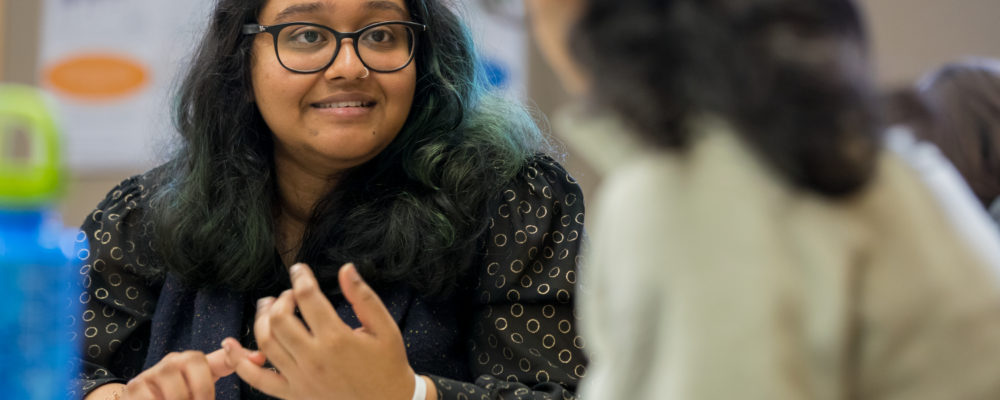
 John C. Foo is the Assistant Director of Faculty Programs and Services for Science and Engineering at Columbia’s Center for Teaching and Learning. He develops and facilitates programming and services for faculty, postdoctoral, adjunct, and other instructors. John is committed to enhancing STEM education and making it more equitable for and accessible to Columbia’s diverse student population. John received his Ph.D. in Biomedical Engineering from Cornell University and his B.S.E. in Biomedical Engineering from the University of Michigan, Ann Arbor. While John was at Cornell, he completed the Teagle Fellowship, the Graduate Teaching Assistant Fellowship, and the Graduate Research and Teaching Fellowship. He published the results of one of his studies on the Flipped Classroom.
John C. Foo is the Assistant Director of Faculty Programs and Services for Science and Engineering at Columbia’s Center for Teaching and Learning. He develops and facilitates programming and services for faculty, postdoctoral, adjunct, and other instructors. John is committed to enhancing STEM education and making it more equitable for and accessible to Columbia’s diverse student population. John received his Ph.D. in Biomedical Engineering from Cornell University and his B.S.E. in Biomedical Engineering from the University of Michigan, Ann Arbor. While John was at Cornell, he completed the Teagle Fellowship, the Graduate Teaching Assistant Fellowship, and the Graduate Research and Teaching Fellowship. He published the results of one of his studies on the Flipped Classroom.


 Many students, especially gender and racial minorities, switch majors from STEM to the humanities after early biology coursework. This experimental study tested whether “normalizing failure” could change early-career biology students’ common misconception that professional scientists are naturally talented and that students who struggle cannot pursue science. In the control group, class was taught as usual. In the treatment group, the instructor provided anecdotes of many different scientists experiencing failure – herself, other TAs, professors, and famous scientists – and gave students a minute to talk about their struggles at the end of each class. Both quantitative and qualitative results of this study will be presented. The effects of the COVID-19 pandemic on data collection during the second semester of this study, and the effects of the pandemic on students’ career plans and perceptions of scientific professionals, will also be discussed.
Many students, especially gender and racial minorities, switch majors from STEM to the humanities after early biology coursework. This experimental study tested whether “normalizing failure” could change early-career biology students’ common misconception that professional scientists are naturally talented and that students who struggle cannot pursue science. In the control group, class was taught as usual. In the treatment group, the instructor provided anecdotes of many different scientists experiencing failure – herself, other TAs, professors, and famous scientists – and gave students a minute to talk about their struggles at the end of each class. Both quantitative and qualitative results of this study will be presented. The effects of the COVID-19 pandemic on data collection during the second semester of this study, and the effects of the pandemic on students’ career plans and perceptions of scientific professionals, will also be discussed. In a course about the history of commemorating the dead, students completed part of an assignment series that asked increasingly complex questions about primary sources. Having witnessed many undergraduate history lessons compress primary source literacy to a single, overwhelming instruction session, I was frustrated. I designed the sequence based in part on scaffolding introduced by Badhe (2013) in order to equip students with the skills to tackle unfamiliar sources with an analytical eye. Over the course of the term, students examined, analyzed, and wrote about an 18th century post-mortem report, a colonial official’s letter about corpse disposal for executed prisoners in Fiji, and an ordinance legalizing cremation in British Honduras after the mistaken burial of a Sikh man.
In a course about the history of commemorating the dead, students completed part of an assignment series that asked increasingly complex questions about primary sources. Having witnessed many undergraduate history lessons compress primary source literacy to a single, overwhelming instruction session, I was frustrated. I designed the sequence based in part on scaffolding introduced by Badhe (2013) in order to equip students with the skills to tackle unfamiliar sources with an analytical eye. Over the course of the term, students examined, analyzed, and wrote about an 18th century post-mortem report, a colonial official’s letter about corpse disposal for executed prisoners in Fiji, and an ordinance legalizing cremation in British Honduras after the mistaken burial of a Sikh man. The course requirements for a bachelor’s-level degree program are intended to create a “meta-curriculum” that together provide a certain core competency in the major discipline. In the field of biology, the fundamental building blocks of this core competency have been rapidly evolving, expanding, and diversifying over the past decades, leading to restructuring of departments and curricula. In 2010, Cornell University implemented revised requirements for the B.S. in Biological Sciences degree, which included replacing a two-semester required Introductory Biology course with a set of three introductory-level courses; students can enroll in any two of these courses. The revised meta-curriculum did not, however, make any changes to the Genetics lecture and laboratory courses, which are among the only mandatory courses in the department. Thus, the prior molecular biology knowledge of students enrolled in Genetics is more heterogeneous than it was before 2010. I am interested in understanding the impacts of this change on student learning outcomes. However, much of the most relevant “literature” on this question dwells solely in the recollections of long-term instructional faculty and staff, who comprise the institutional memory of the course. As a first step toward designing well-founded research on the student impacts of these changes, I have drawn on contemporaneous written records and conducted narrative interviews to construct a history of the redesign, its objectives, and its outcomes. This work will provide necessary context to the development of additional quantitative and qualitative instruments, e.g. those that gather data directly from students.
The course requirements for a bachelor’s-level degree program are intended to create a “meta-curriculum” that together provide a certain core competency in the major discipline. In the field of biology, the fundamental building blocks of this core competency have been rapidly evolving, expanding, and diversifying over the past decades, leading to restructuring of departments and curricula. In 2010, Cornell University implemented revised requirements for the B.S. in Biological Sciences degree, which included replacing a two-semester required Introductory Biology course with a set of three introductory-level courses; students can enroll in any two of these courses. The revised meta-curriculum did not, however, make any changes to the Genetics lecture and laboratory courses, which are among the only mandatory courses in the department. Thus, the prior molecular biology knowledge of students enrolled in Genetics is more heterogeneous than it was before 2010. I am interested in understanding the impacts of this change on student learning outcomes. However, much of the most relevant “literature” on this question dwells solely in the recollections of long-term instructional faculty and staff, who comprise the institutional memory of the course. As a first step toward designing well-founded research on the student impacts of these changes, I have drawn on contemporaneous written records and conducted narrative interviews to construct a history of the redesign, its objectives, and its outcomes. This work will provide necessary context to the development of additional quantitative and qualitative instruments, e.g. those that gather data directly from students. Evidence-based practice is a crucial component of medical nutrition therapy. However, little has been published on effective techniques used to teach students to evaluate evidence and decide whether or not to use results in patient care. The purpose of this project was to evaluate the effectiveness of a module created to teach students the skills they need to appropriately translate research into evidence-based practice. A 3-hour module was designed using social learner theory and mindmaps. The module was integrated into a mid-level dietetics course (n=32 students). A 15-question pre/post-test was developed to assess confidence, knowledge and perceived barriers related to evidence-based practice. Quantitative data were assessed using paired t-tests (p<0.05) and qualitative data were coded and assessed for common themes. Prior to the module, 97% of students felt it was important or very important to be able to critique the scientific literature; however, only 19% felt confident in their ability to do so. The volume of available research and a lack of confidence and time were the most common perceived barriers to appropriately using research in practice. Comparison of pre- and post-tests showed that this module significantly increased students’ confidence in their abilities to use and evaluate the scientific literature (p<0.001) and significantly increased student performance on scored questions (p<0.001). In conclusion, this 3-hour module is an effective way to teach students to critically evaluate scientific literature. Because of its design, it can be adapted for the instruction of students or practicing registered dietitians alike.
Evidence-based practice is a crucial component of medical nutrition therapy. However, little has been published on effective techniques used to teach students to evaluate evidence and decide whether or not to use results in patient care. The purpose of this project was to evaluate the effectiveness of a module created to teach students the skills they need to appropriately translate research into evidence-based practice. A 3-hour module was designed using social learner theory and mindmaps. The module was integrated into a mid-level dietetics course (n=32 students). A 15-question pre/post-test was developed to assess confidence, knowledge and perceived barriers related to evidence-based practice. Quantitative data were assessed using paired t-tests (p<0.05) and qualitative data were coded and assessed for common themes. Prior to the module, 97% of students felt it was important or very important to be able to critique the scientific literature; however, only 19% felt confident in their ability to do so. The volume of available research and a lack of confidence and time were the most common perceived barriers to appropriately using research in practice. Comparison of pre- and post-tests showed that this module significantly increased students’ confidence in their abilities to use and evaluate the scientific literature (p<0.001) and significantly increased student performance on scored questions (p<0.001). In conclusion, this 3-hour module is an effective way to teach students to critically evaluate scientific literature. Because of its design, it can be adapted for the instruction of students or practicing registered dietitians alike. Teaching as Research (TAR) projects are inherently interdisciplinary, pulling assessment methods and analysis techniques from several disciplines. There are many challenges involved with the collaborative nature of these studies that ultimately lead to unique perspectives on and interpretations of the results. While some hurdles in collaborative research need to be addressed with each new project, others can be acknowledged and incorporated ahead of time for smoother planning and timely publication.
Teaching as Research (TAR) projects are inherently interdisciplinary, pulling assessment methods and analysis techniques from several disciplines. There are many challenges involved with the collaborative nature of these studies that ultimately lead to unique perspectives on and interpretations of the results. While some hurdles in collaborative research need to be addressed with each new project, others can be acknowledged and incorporated ahead of time for smoother planning and timely publication.